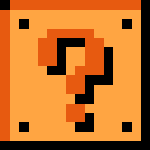Post by Deleted on Jul 20, 2012 7:13:43 GMT -5

The Game to Gain 10 Years of Life
I’m a gamer. I like goals, special missions and secret objectives, so here’s my special mission for this post: I’m going to try to increase the life span of every reader by seven and a half minutes. You will live seven and a half minutes longer than you otherwise would have just because you read this post.
I’m not surprised if you’re sceptical, I would be as well, but check this out, I have maths! It may not make any sense to you right now, but all you have to do is focus on the number and, hopefully, things will become clear for you as you read.
78.1 + 10 = 88.1
10 / 88.1 = +0.128040973
0.128040973 x 365 = +46.7349551
46.7349551 x 24 x 60 = +67298.3353
67298.3353 / 365 = +184.379001
184.379001 / 24 = +7.68245837
10 / 88.1 = +0.128040973
0.128040973 x 365 = +46.7349551
46.7349551 x 24 x 60 = +67298.3353
67298.3353 / 365 = +184.379001
184.379001 / 24 = +7.68245837
You have a secret mission, too. Your mission is to figure out ...
What do you want to do with your extra 7 minutes?
I think you should do something unusual with them. They’re bonus minutes, you weren’t going to have them, so it’s only fair you do something special with them. Perhaps you might like to spend them playing a game.
Will We Regret It?
The anti-gamer mentality is so pervasive in today’s society, that games are seen at best as an enjoyable pastime, but mostly as useless and a waste. In fact, games have been blamed for everything from delinquency, increased crime rates, obesity, heart disease and many more besides. This mentality is so firmly ingrained in our thoughts that people can’t help but ask, when we’re on our deathbed, will we really wish we’d spent more time playing Angry Birds?

Deathbed Regrets
It might surprise you to learn that hospice workers, the people who take care of us when we are about to die, have released a report on the most frequently expressed regrets of people who are literally on their deathbeds, here I’d like to share them with you.
1. I wish I hadn’t worked so hard.
2. I wish I’d stayed in touch with my friends.
3. I wish I’d let myself be happier.
4. I wish I’d had the courage to express my true self
5. I wish I’d lived a life true to my dreams, instead of what others expected of me.
Deep Human Desires
Now, as far as we know, no one actually told the hospice workers they wished they’d spent more time playing video games, but when I look at that list, I can’t help but see five deep human desires that games actually help us fulfil.
1. I wish I hadn’t worked so hard.
For many people this means ‘I wish I’d spent more time with my family’ or ‘I wish I’d taken more time for myself’. Playing games together has tremendous personal and family benefits. Parents who spent more time playing video games with their children had stronger real life relationships with them.
(Source)
2. I wish I’d stayed in touch with my friends.
Hundreds of millions of people are using social games like Farmville and Words with Friends to stay in touch with real life friends and family on a daily basis. These games are powerful relationship management tools. They help us stay connected with people in our social network that we would otherwise lose touch with.
(Source)
3. I wish I’d let myself be happier.
Groundbreaking research has revealed that online games can outclass pharmaceuticals in treating clinical anxiety and depression. Just 30 minutes of online gameplay a day was enough to create dramatic boosts in mood and long term increases in happiness.
(Source)
4. I wish I’d had the courage to express my true self.
Game avatars are a way to express our true selves. Our most heroic, idealized version of who we might become. Playing a game with an idealized avatar changes how we think and act in real life. It makes us more courageous, ambitions and more committed to our goals.
(Source)
5. I wish I’d lived a life true to my dreams, instead of what others expected of me.
It’s unclear whether or not games are doing this for us yet.

Why a Game?
When we play a game, we tackle tough challenges with more creativity, optimism, determination, and we’re more likely to reach out to others for help. Originally invented by Jane McGonigal, thousands of people worldwide have begun to play a role-playing recovery game called SuperBetter, in which they attempt to turn a real life problem or goal into a game.
It’s simple and easy to play and consists of four simple steps:
1. Adopt a secret identity, a hero which you become to fight for your goals.
2. Recruit your allies in the form of friends and family.
3. Fight the bad guys. These take the form of anything that holds you back from your goals.
4. Activate power-ups, or anything you can do quickly and easily to make you feel even just a little bit happy, or to help you reach your goals.
Within days of beginning the game, hundreds of people found that, although the physical symptoms of their problems persisted, even while they were in pain, they stopped suffering. It wasn’t a cure for the physical, but it made people feel able to face challenges like depression, cancer, chronic pain, Crohn's disease. People were even playing it for terminal diagnoses like ALS.
The game was helping them to feel stronger, braver, better understood by their friends and family, and they even talked about feeling happier. Even though they were in pain and tackling tough challenges, they no longer suffered as they once did.
Forget PTSD, Say Hello to Post-Traumatic Growth
You may be wondering what’s going on. How can a game actually have such a great affect on people, even people in life or death circumstances? Some people get stronger and happier after a traumatic event. We’ve all heard about PTSD, or post-traumatic stress disorder, but you’ve probably never heard of its better half, PTG, or post-traumatic growth. When we go through a traumatic event, we are not doomed to suffer as was once thought to be the case. SuperBetter was a springboard for people to experience post-traumatic growth.
Here are the top five things people who have experienced PTG say:
1. My priorities have changed, I’m not afraid to do what makes me happy.
2. I feel closer to my friends and family.
3. I understand myself better; I know who I really am now.
4. I have a new sense of meaning and purpose in life.
5. I’m better able to focus on my goals and dreams.
If this sounds familiar, it’s because it’s the polar opposite of the list of deathbed regrets mentioned earlier. Seriously, go and look. Somehow, a traumatic event can unlock our ability to lead a life with less regrets. Better yet, there are simple and easy things that anyone can do to help them experience post-traumatic growth without having to go through the trauma part first.
How to Play
This is the part where you earn those extra seven and a half minutes I promised you earlier. We’re going to play a quick game together, and all you have to do is successfully complete the first four SuperBetter quests, and I know you can do it.
Congratulations, you just earned +1 physical resilience. This means your body can withstand more stress and heal itself faster. The number one best thing you can do to boost physical resilience is to not sit still. It’s as simple as that. Every second you are not sitting still, you are actively improving the health of your heart, your lungs and your brain.
Congratulations, you just earned +1 mental resilience. This means you have more focus, determination, willpower and discipline. Willpower works like a muscle that gets stronger the more you exercise it, so tackling small challenges without giving up, even one as absurd as clicking your fingers 50 times, is actually a valid way to boost your willpower.
Congratulations, you just earned +1 emotional resilience. This means you have the ability to provoke powerful positive emotions like curiosity or love when you need them most. If you can manage to experience three positive emotions for every one negative emotion over the course of an hour, you dramatically improve your health and your ability to successfully face any challenge. This is called the 3:1 positive emotion ratio.
Congratulations, you just earned +1 social resilience. This means you gain strength from your friends, neighbours, family and community. Gratitude and touch are great ways to boost social resilience, and shaking someone’s hand for six seconds dramatically raises the level of oxytocin in your blood. It’s the trust hormone. That means that those of you who shook someone’s hand are biochemically primed to like and want to help each other, and the affects linger afterwards.
Your Seven Minutes
Well done! If you’ve completed the first four SuperBetter quests, you are the proud new owner of seven and a half extra minutes of life! But here’s something even cooler; each of the four quests corresponded to a type of resilience, with all four types of resilience contributing to the experience of post-traumatic (or hopefully not post-traumatic) growth. People who regularly do exercises to boost those four types of resilience live ten years longer than everyone else.

Here is where that maths I showed you earlier comes in.
78.1 + 10 = 88.1
We know that the average life expectancy of humans is 78.1 years, but we also know from hundreds of peer reviewed studies that those who regularly boost their four types of resilience live ten years longer.
10 / 88.1 = +0.128040973
Each year you actively boost your four types of resilience, you’re earning 0.18 more years of life.
0.128040973 x 365 = +46.7349551
Or 46 more days.
46.7349551 x 24 x 60 = +67298.3353
Or 67,298 minutes.
67298.3353 / 365 = +184.379001
Which means every single day, you are earning 184 more minutes of life.
184.379001 / 24 = +7.68245837
Or every single hour that you are boosting your four types of resilience like we just did together, you are earning 7.682 minutes of life.
Your Secret Mission
Congratulations, those seven minutes of life are all yours, you earned them! But you still have your secret mission, so what are you going to do with your seven minutes? The great thing about this is that it’s kind of like getting three wishes. You can use your first wish to wish for more wishes! If you spend that time doing something that makes you happy, getting active, reaching out to friends and family, or even tackling small challenges, you will be actively creating more minutes, days and years for yourself. And you don’t have to stop, you can keep going every day, all the way until the day you die. (Which will be 10 years later than it otherwise would have been) And when you get there, more than likely, you will not have any of those top five regrets, because you will have built up the resilience to life a life truer to your dreams.
And with ten extra years, you might even have enough time to play a few games.
Thank you.






